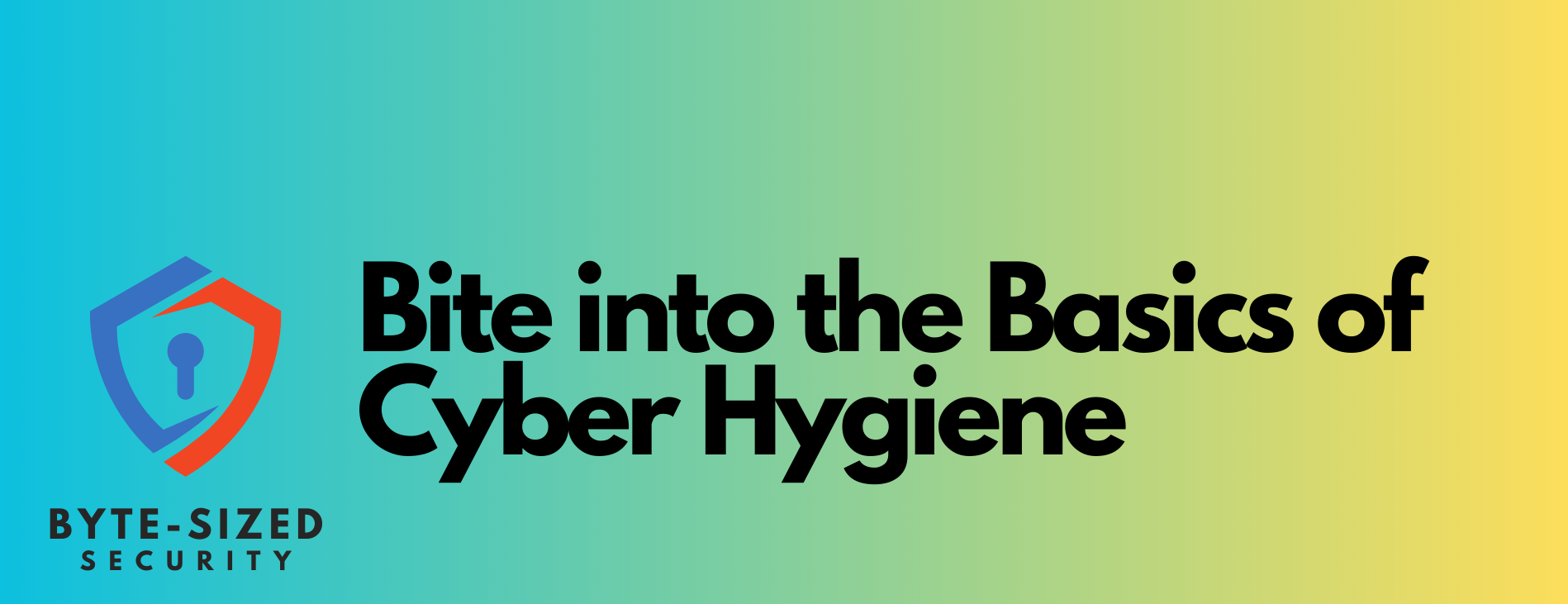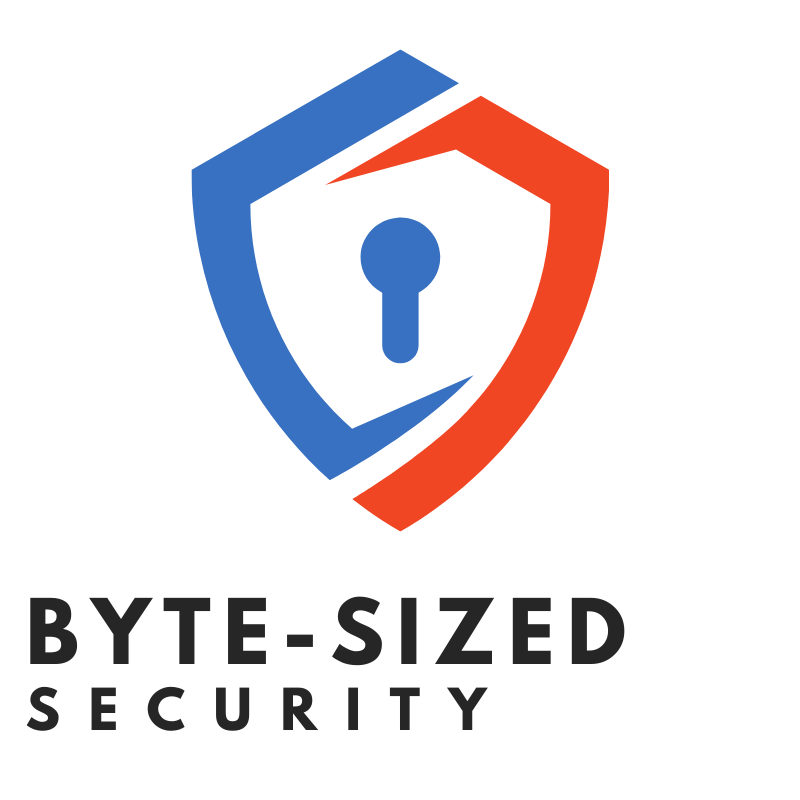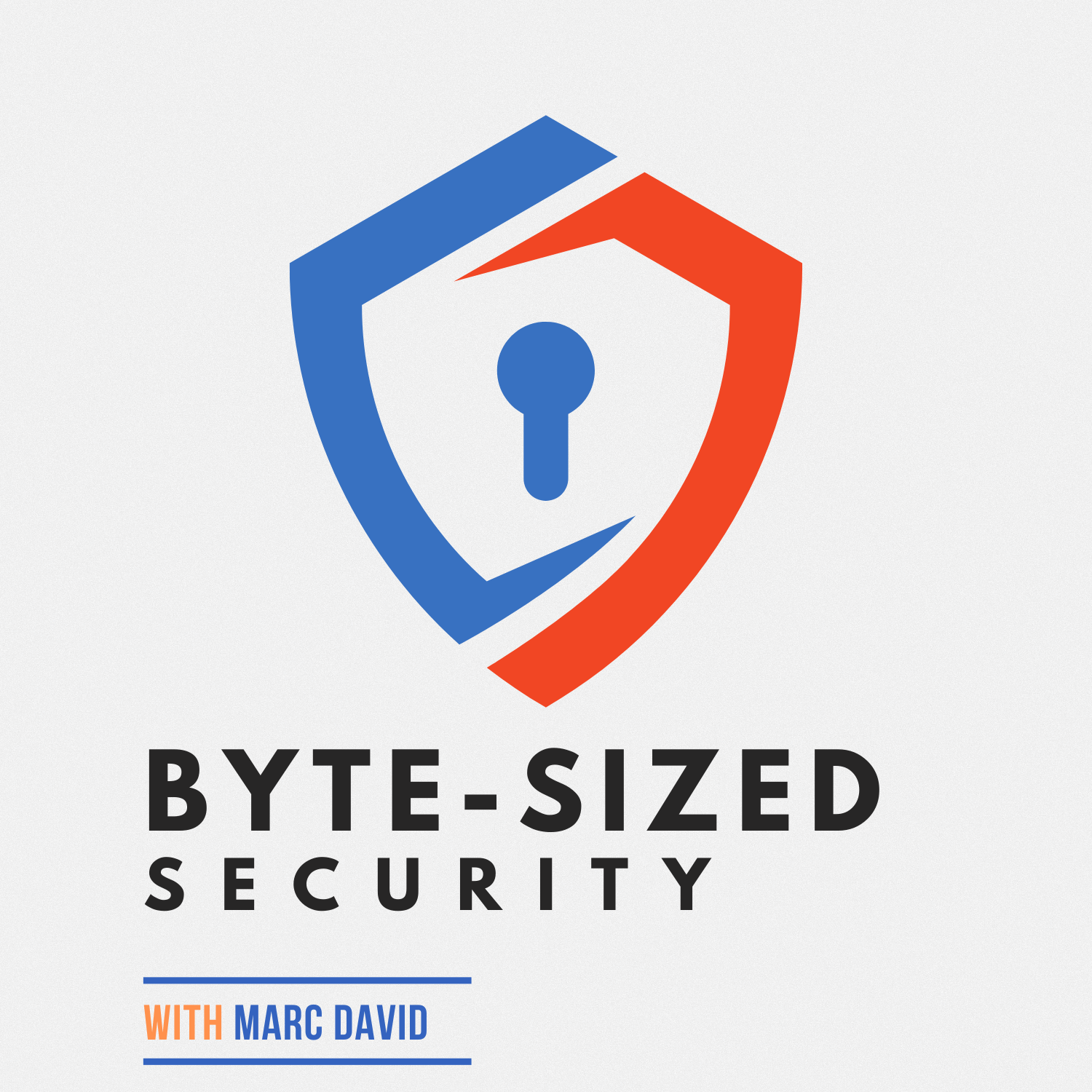Ep8: Securing Your Credit Reports and Freezes
In this episode, Marc David speaks with credit expert Olivia Chen about best practices for safeguarding your credit reports and identity including:
- Placing credit freezes with Equifax, Experian and TransUnion to restrict new account openings
- Lifting freezes temporarily when applying for new credit using your PIN
- Freezing children’s credit reports until they are old enough to manage credit
- Checking your credit reports annually for signs of fraudulent activity
- Reviewing reports to verify personal info and watch for unauthorized accounts
- Disputing fraudulent charges, closing accounts and reporting identity theft
- Putting freezes and monitoring in place proactively even if not breach impacted
- Making credit protections part of your regular financial security regimen
For full episode recaps and cybersecurity tips, visit bytesizedsecurity.show or subscribe to the podcast. See you next time!
---
I do hope you enjoyed this episode of the podcast. Here's some helpful resources including any sites that were mentioned in this episode.
--
Sites Mentioned in this Episode
- IdentityTheft.gov - Recovery Steps - Hopefully you won't need this resource but if you do or you know somebody who needs help with Identity Theft
- Annual Credit Report.com - Home Page - The free way to request your credit report, annually, from the big agencies
- Credit Freeze | Freeze My Credit | TransUnion
- Security Freeze | Freeze or Unfreeze Your Credit | Equifax
- How to Freeze Your Credit For Free - Experian
- Free credit freezes are here | Consumer Financial Protection Bureau
- What To Know About Credit Freezes and Fraud Alerts | Consumer Advice
- How To Freeze Your Credit With Experian, Equifax and TransUnion - This article from Clark Howard provides excellent guidance on how to freeze and unfreeze your credit with the three major credit bureaus to prevent identity theft.
--
Find subscriber links on my site, add to your podcast player, or listen on the web players on my site:
--
Support this Podcast with a Tip:
Transcript
Welcome back to the Byte Sized Security podcast, your source for
Marc:bite-sized cybersecurity lessons.
Marc:I’m Marc David, and with me today I have credit security expert Olivia Chen.
Marc:Given the prevalence of data breaches exposing personal information,
Marc:having vigilant credit protections in place is more crucial than ever.
Marc:Olivia joins me to discuss best practices like credit freezes,
Marc:monitoring your credit reports, and safeguarding your child’s information.
Marc:If you want practical tips to lock down your credit from
Marc:fraud, this episode is for you.
Marc:Let’s dive in!
Marc:Olivia, so great to have you on the show.
Marc:Can you start by explaining what a credit freeze is and its benefits?
Olivia:Happy to be here, Marc!
Olivia:A credit freeze restricts access to your credit report, which prevents anyone from
Olivia:opening new credit accounts in your name.
Olivia:This makes it vastly harder for identity thieves to use your information even
Olivia:if it’s compromised in a breach.
Olivia:Freezes must be lifted temporarily when you want to apply for new
Olivia:credit, but it’s easy to do online.
Olivia:I highly recommend freezes for maximum credit protection.
Marc:That’s really good to know.
Marc:What's the process for freezing your credit reports?
Olivia:You have to place a freeze separately with each of the three
Olivia:major credit bureaus – Equifax, Experian and TransUnion.
Olivia:This can be requested online or by mail.
Olivia:The bureaus must place the freeze within 1 business day, and provide
Olivia:a unique PIN to lift it when needed.
Olivia:Keep the PIN very secure, like your credit card PIN.
Olivia:Some states allow fees but many offer free freezes.
Marc:Are there any downsides to having a credit freeze that
Marc:people should be aware of?
Olivia:The main thing is it takes additional planning when you want to
Olivia:apply for new credit, as you have to proactively lift the freezes at each
Olivia:bureau a few days before applying.
Olivia:So it can add a small hurdle to the process.
Olivia:However, I think that extra vigilance is worth the very strong identity
Olivia:theft protection a freeze provides.
Marc:What about thawing credit freezes, is that a difficult process
Marc:if people need to apply for credit?
Olivia:Not at all!
Olivia:You simply log into each bureau’s website and lift the freeze
Olivia:temporarily using your PIN.
Olivia:It usually takes effect within an hour and usually much less.
Olivia:Just be sure to refreeze after you’re done applying for new credit but
Olivia:most bureaus auto-freeze again or allow you to set a shorter timeframe.
Olivia:You can also do temporary 7-day lifts.
Olivia:The key is freezing by default, and only thawing briefly when needed to
Olivia:avoid keeping credit perpetually open.
Olivia:A quick tip is to ask whoever needs to check your credit, which bureau
Olivia:they will check so you can just thaw that agency and save yourself
Olivia:some time from doing them all.
Marc:This seems especially important for parents to consider for their children.
Marc:What’s your advice regarding kids’ credit freezes?
Olivia:I absolutely advise that parents freeze their minor children’s
Olivia:credit files in addition to their own.
Olivia:Child ID theft is sadly very common, often going undetected for years.
Olivia:Their credit should remain frozen until they are old
Olivia:enough to manage it themselves.
Olivia:Just be sure to lift and refreeze when applying for student loans.
Olivia:Doing this prevents criminals from exploiting kids’ unused credit.
Marc:Let’s pivot to credit reports themselves.
Marc:Why is it so important to check your reports annually?
Olivia:Reviewing your credit reports regularly lets you catch
Olivia:any signs of fraudulent activity early, like accounts you didn't open.
Olivia:You also verify your listed personal and contact info is correct.
Olivia:Everyone is entitled to one free credit report from each bureau
Olivia:yearly at annualcreditreport.com.
Olivia:I suggest staggering checks every 4 months to monitor consistently.
Marc:What are some red flags people should watch for when
Marc:reviewing their credit reports?
Olivia:Things like accounts, address changes or inquiries you don't recognize
Olivia:could be signs of identity theft.
Olivia:Make sure no unauthorized credit checks were done by lenders.
Olivia:Ensure listed employers and income are correct.
Olivia:Watch for errors like mistaken late payments that could
Olivia:unjustly lower your score.
Olivia:Basically verify the data reflects your actual credit profile.
Marc:If listeners discover potential fraud on their credit report, what
Marc:steps should they take to remediate it?
Olivia:First, immediately notify the involved creditors and have
Olivia:any fraudulent accounts closed.
Olivia:Then dispute the charges with each credit bureau in writing, providing
Olivia:evidence like police reports.
Olivia:This initiates fraud investigations.
Olivia:You can also request fraud alerts on your files requiring scrutiny of new accounts.
Olivia:And contact the FTC to report the identity theft.
Olivia:With quick action, the damage can be contained and credit restored.
Marc:For listeners concerned after all the recent breaches, would you
Marc:suggest they check and freeze credit now regardless of whether they were impacted?
Olivia:Absolutely, given how rampant exposes of consumer data have become.
Olivia:Even if you don’t know you were directly affected, putting a proactive
Olivia:freeze gives you reliable protection.
Olivia:And checking reports allows early discovery of any credit misuse.
Olivia:Don’t wait to take these precautions.
Marc:Final words of wisdom for our listeners looking
Marc:to lock down their credit?
Olivia:My main advice would be to make credit protections like
Olivia:freezes and monitoring your reports part of your regular financial
Olivia:hygiene, like checking bank balances.
Olivia:Cybercrime is only growing, so permanent vigilance is key.
Olivia:But with proactivity, you can greatly minimize risks
Olivia:to your identity and credit.
Marc:Outstanding tips, Olivia.
Marc:Thank you for sharing your credit security insights!
Olivia:My pleasure, thanks for having me on!
Marc:That wraps up this episode focused on empowering you to secure
Marc:your credit reports and identity.
Marc:Implement freezes, routinely check your reports, and act quickly
Marc:against any fraudulent activity.
Marc:By being proactive, you can reduce risks of damaging credit fraud.
Marc:Visit byte sized security.show for more cybersecurity lessons.





